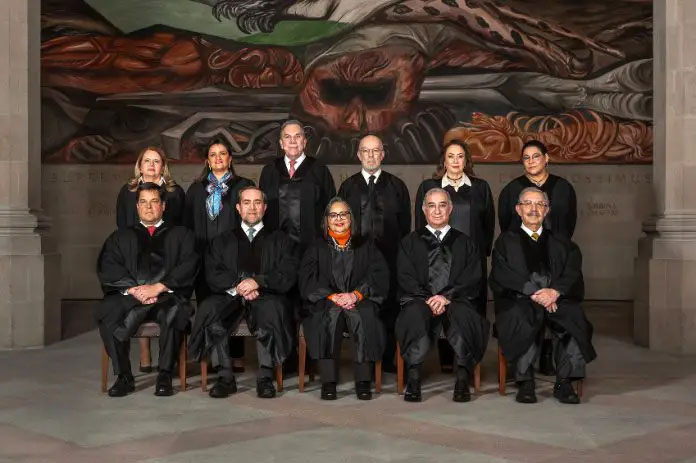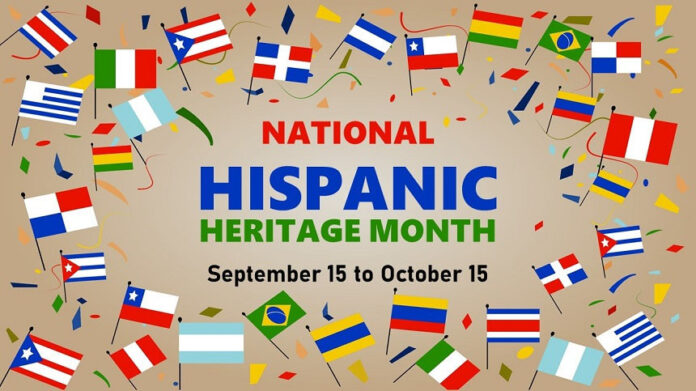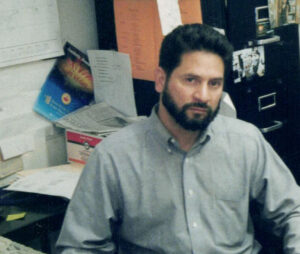About 4 in 10 Californians are carrying medical debt. Lawmakers are advancing a bill that would prevent that debt from affecting credit scores
by Ana B. Ibarra
August 27, 2024 – Medical debt weighs heavily on the lives of millions of Californians. It can ding their credit scores and hurt their chances of landing a rental or securing a home mortgage.
Earlier this year, the Biden administration announced a proposal to stop medical debt from showing up on credit reports. That proposed rule is under consideration with an uncertain timeline.
California lawmakers are moving faster with a similar measure that would take effect as soon as January if it becomes law.
Sen. Monique Limón, a Santa Barbara Democrat, is carrying Senate Bill 1061, which would remove medical debt from credit reports and prohibit debt collectors from reporting patients’ medical debt information to credit agencies. It would pertain specifically to debt owed to a medical provider, such as a hospital or a doctor’s office.
It passed the Assembly on Monday and is heading to the Senate for a final vote. Until recently, the bill would have also included debt charged to medical credit cards and specialty loans, but changes in the Assembly Appropriations Committee redefined “medical debt” to exclude these.
Limón was surprised by the changes. The amendments were a win for a coalition of bankers and lenders that had been requesting that change for months. Following the amendments, the coalition removed its opposition to the proposal.
“This legislation passed through three Assembly policy committees without the most recent amendments by Assembly Appropriations, which substantially weaken the bill,” Limon told CalMatters in an emailed statement. “It is clear that … influential entities opposed to the measure prevailed.
“In spite of this disappointing setback, I plan to continue pushing for the passage of SB 1061 in the hope that we can provide partial relief to consumers.”
Representatives for Assembly Speaker Robert Rivas would not comment on the bill and Assembly Appropriations Committee Chairperson Buffy Wicks did not reply to messages and emails asking why the changes were made. Those lawmakers can change bills in the Appropriations Committee.
Supporters of Limon’s bill say even though the feds are moving in a similar direction, California’s bill still has merit.
“The (federal) rulemaking right now, it’s just a proposal. It could get watered down, they take a long time. And then, of course, depending on what happens with the election, there’s a big question mark of what happens to any of our federal rules,” said Jenn Engstrom, state director with the California Interest Research Group, a co-sponsor of the bill. “So rather than leaving it up to the uncertainty of the federal government, we think it’s really important that California has a strong role here.”
The bill is backed by Attorney General Rob Bonta and the California Nurses Association, among other health advocates. Proponents argue that people acquire medical debt through no fault of their own. After all, going into debt because you need surgery is not the same as going into debt for a luxury vacation. Experts and advocates say medical debt is also more prone to inaccuracies because of mistakes in billing or disputes with insurers.
The bill “does not forgive debt, but it does ensure that when it’s not reported we don’t negatively impact credit scores for a lifetime for people,” Limón said.
If the bill makes it to the governor’s desk and he signs the bill, California would join states such as Colorado and New York in prohibiting medical debt from damaging credit scores.
The burden of medical debt
About 4 in 10 Californians report carrying some type of medical debt, according to the California Health Care Foundation. Nationally, the average medical balance on credit reports is around $3,100.
“The impact of this debt is so well-known that many people take it into consideration when deciding whether to seek care when they need it, and many opt not to, deciding to steer clear of the (medical) bill, which puts their health at risk,” said Katie Van Deynze, a policy and legislative advocate with the consumer advocacy group Health Access California.
In June, the Biden administration announced a proposal that would bar medical debt from appearing on credit reports. It’s expected to help raise the credit scores of approximately 15 million Americans by an average of 20 points, according to the administration’s announcement. The administration estimates that would translate to the approval of about 22,000 additional mortgages every year.
The federal proposal also leaves out medical credit cards, a gap Limón was hoping to close.
Medical credit cards may be offered by medical providers as an option to cover the cost of a procedure. They can be enticing, offering people the option of no payment upfront and a promotional period of deferred interest. However, if interest does kick in, it can be higher than that of a regular credit card.
Groups such as the California Bankers Association argued that the definition of “medical debt” in Limón’s bill was too broad. The only debt that should be included in this legislation, they said, is the kind that is directly owed to a medical facility or provider. In hearings and letters to the Legislature, lobbyists for these groups argued that medical credit cards could also be used for elective procedures, fitness programs and veterinary services, among other expenses. That type of debt, they argued, should not be hidden from creditors.
Medical debt forgiveness
The topic of medical debt resonates so much with the public that some local governments and states are going one step further and pushing for debt relief programs.
This summer the Los Angeles County Board of Supervisors announced a pilot program to buy off millions worth of its residents’ medical debt through a partnership with the national nonprofit Undue Medical Debt. Hospitals and other providers can sell unpaid debt to companies that would profit from collecting that money. Undue Medical Debt leverages this arrangement and purchases debt for cents on the dollar, but instead of collecting the debt, it cancels it.
Through this model, county supervisors estimate they can spend $5 million to cancel $500 million worth of debt for 150,000 low-income residents. Medical debt in Los Angeles County surpasses $2.9 billion, according to an analysis by the county’s public health department.
New York City and Arizona have done similar deals with the same nonprofit. And just last week, New Jersey Democratic Gov. Phil Murphy announced that the state would use leftover pandemic relief dollars to eliminate $100 million worth of medical debt for 50,000 residents.
Democratic presidential nominee Kamala Harris has pledged to build on the current administration’s efforts to wipe medical debt from credit reports by incorporating debt forgiveness. Among her campaign promises: “Work with states to cancel medical debt for millions of Americans.”
Last month, the Washington Post reported that Harris had been working with North Carolina to incentivize hospitals there to forgive patients’ medical debt in exchange for additional Medicaid dollars. In mid-August, North Carolina Democratic Gov. Roy Cooper announced that all of the state’s 99 hospitals agreed to participate in this program. About 2 million low- and middle-income North Carolina residents are expected to benefit starting next summer.
Supported by the California Health Care Foundation (CHCF), which works to ensure that people have access to the care they need, when they need it, at a price they can afford. Visit www.chcf.org to learn more.














